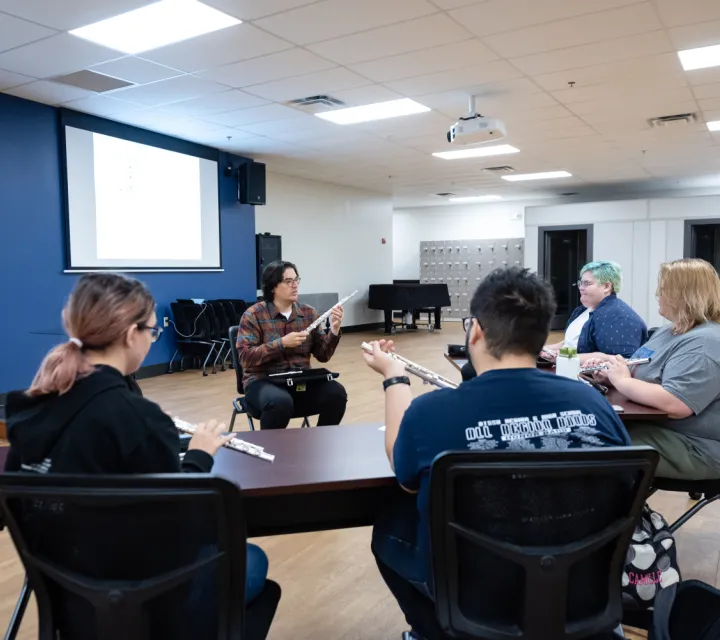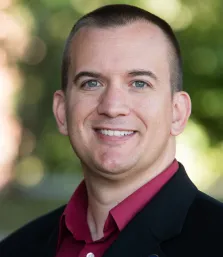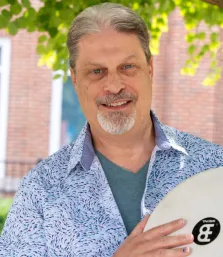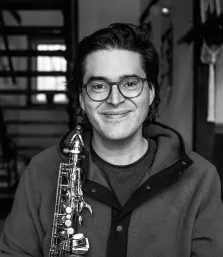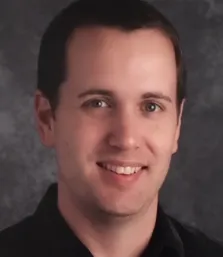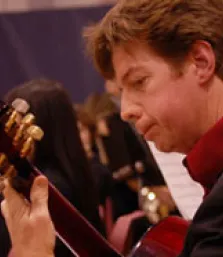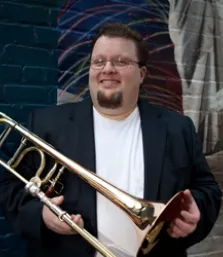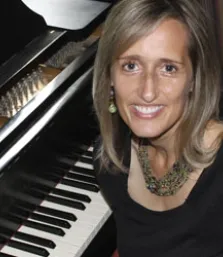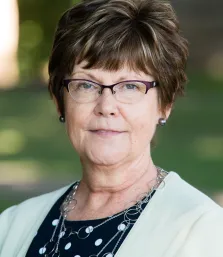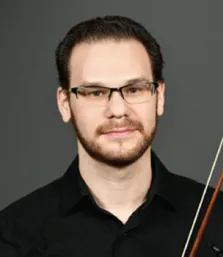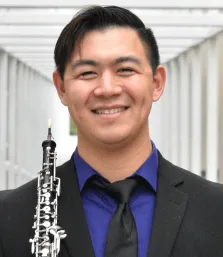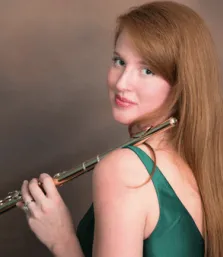After careful review, the College has decided to phase out the Music Education major over the next few years. No new students will be admitted into this program. The College will continue to offer a Bachelor of Arts in Music.
Become a Music Educator
In the spirit of academic excellence and leadership qualities encapsulated in a Marietta College education, the Bachelor of Music in Music Education program challenges one to realize their potential and become a leader in the profession.
This major requires coursework that prepares each student for multi-age (Pre-K through 12th grade) licensure in music within an environment that provides the individual attention and specialized courses needed to succeed. It challenges each student to not only develop their musical and pedagogical skills but to develop an understanding of the issues and theories impacting the future of music education in the United States and to become an advocate for music in our schools.
Marietta’s program is accredited through the National Association of Schools of Music, which is the only accrediting agency covering the entire field of music recognized by the United States Department of Education.
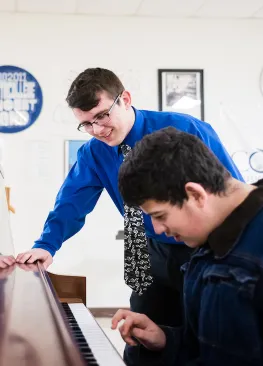
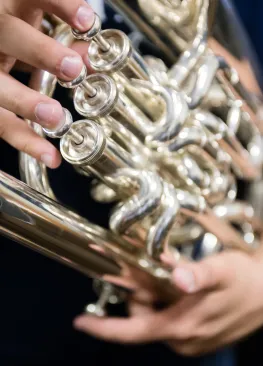
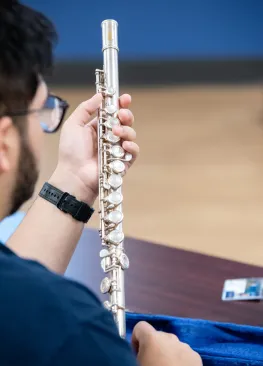
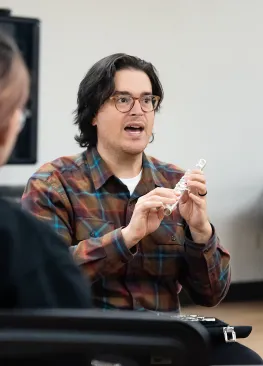
What You’ll Learn as a Music Education Major
Our major in Music Education requires a broad range of courses needed to prepare its graduates for multi-age music licensure within a liberal arts context.
Diverse Coursework
In addition to their core music and education courses, music education majors refine their skills through more than 180 contact hours in conducting and rehearsal techniques, over 150 field experience hours prior to student teaching, pedagogy courses, a course in teaching music with technology, a three-semester conducting sequence, and a selection of elective courses based on each student’s music specialization. All of the major’s teaching methods courses are taught within the music department — with only 18 hours in other disciplines, including Education & Psychology.
Preparing Leaders
This curriculum is designed to attract the finest future music educators and provide them with opportunities for personalized instruction. Admission each year is based on previous academic success, a performance audition, a music résumé, and a personal interview. Housed within Marietta College’s challenging liberal arts environment, each class of majors forms a unique learning community that includes frequent individual contact with professors, performance opportunities to help you become a successful musician, a focus on practical knowledge to help you become a successful classroom teacher, and the knowledge and tools you need to become a future leader.
More Info
Majors also have numerous opportunities to perform in choral and instrumental music ensembles, and other musical groups at Marietta College. Our students perform during basketball games with the pep band, at campus functions with an A Cappella group, for the community during the annual Handel’s Messiah performance in the Basilica of St. Mary of the Assumption in Marietta, and various concerts on campus.
- Honor Societies and Student Organizations
Music-related majors and non-majors who excel in various areas are inducted to Mu Psi Kappa, a national music honorary. Candidates are evaluated by full-time Music faculty on a set of 10 criteria, including grade point average, scholarship, dependability, ability to take guidance and corrections well, being a strong member of a music ensemble, setting a proper example for fellow students, leadership skills, good decision-making skills, going beyond the expected, and acceptable musical growth in both ensembles and applied lessons.
- Instrumental Ensembles
- Symphonic Band
- Wind Ensemble
- Jazz Combo
- Jazz Ensemble
- Chamber Ensembles
- New Music Ensemble
- Pep Band
- Vocal Ensembles
- Concert Choir (mixed)
- Women’s Choir
- Men’s Choir
- Oratorio Chorus
- Floodstage (Contemporary A Cappella)
- Opera Scenes
- Outcomes — Student Teaching
- Holt Crossing Intermediate School
- Wirt County (West Virginia) High Band Camp Staff
- Meadowbrook (Ohio) Middle School Band Staff
- Outcomes — Professions
- West Elementary School — Music Teacher
- Elida Middle School — Band Director
- Grangeville High School — Music Teacher/Band & Choir Director
- Benjamin Logan Middle School — Band Director
FAQs
- When I graduate, will I automatically become certified to teach?
There are two requirements to becoming a teacher: a college degree, and a teaching license. When you successfully complete all course requirements, you will receive the degree. You will not be certified to teach until you successfully complete the state’s teacher licensure exam (Praxis II) and pass the edTPA assessment. The content and skills you will learn in your coursework will prepare you for licensure requirements.
- Does the Department accept AP credit toward the major?
The department recognizes the accomplishments of students who have AP credit in music. Any student who scores a 4 in AP Music Theory will get credit for MUSC 111/112.
- What can I do with a Music Education degree?
The bachelor's degree in Music Education prepares students to teach music in a variety of settings and to students of all ages. Graduates typically pursue careers as:
- Pre-school Music Teachers
- Elementary/General Music Teachers
- Choral Directors
- Band Directors
- Orchestra Directors
- Private Studio Instructors
- Professional Performers
Many of our graduates also pursue graduate degrees in music education, performance, or other professional music endeavors.
